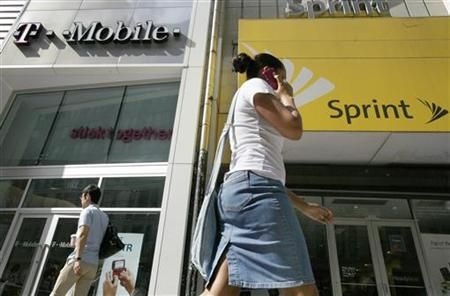Sprint-Clearwire Saga Nears Critical Point

The developments in AT&T's (NYSE:T) attempt to buy T-Mobile over the past week have overshadowed Sprint Nextel Corp. (NYSE:S) and Clearwire's (NASDAQ:CLWR) behind the scenes effort to salvage their relationship in the form of a new agreement by Sprint to wholesale future LTE capacity from Clearwire.
The pressure on Sprint and Clearwire to sign a new wholesale deal could increase notably tomorrow when the coupon payment on Clearwire's debt comes due, BTIG Research analyst Walter Piecyk wrote in a blog post.
While Clearwire has enough cash to make the $237 million payment, it has a 30 day grace period to actually make the payment. A new wholesale agreement with Sprint would enable Clearwire to more easily raise cash to build a fat channel LTE network in 2012 that delivers faster speeds than Verizon and would also likely ensure coupon payments to debt holders not only in December but also in 2012.
However, if Sprint takes a hardball approach in its negotiations with Clearwire could pose problems. A premature re-organization of Clearwire could not only remove some of the rights and power that Sprint and the Cable companies have as strategic partners but it could also nullify the attractive 4G pricing that those companies have achieved for their more than 8 million 4G customers currently using Clearwire's network.
More importantly, Sprint would have to come up with billions of additional cash to buy much needed spectrum which would further increase its debt leverage and squeeze out its own equity value.
While we continue to believe that Clearwire will make the December payment, it is reasonable to think that it would use the grace period while it continues to work out a new LTE wholesale agreement with Sprint, said Piecyk.
Any delay in making that payment would likely have a negative impact on Clearwire and Sprint's stocks placing more pressure on both companies to come to a resolution that works for both sides.
These puzzling strategic moves have over-shadowed the improvements that Sprint has achieved in reducing customer losses and improving their customer satisfaction. Of course, much of that improvement can be credited to the 4G product introductions in 2010 that are now not only eating away at their margins in increased roaming expense paid to Clearwire but could also be disrupted if they are not able to salvage their relationship with Clearwire.
While the impact of a failed relationship with Clearwire would be decidedly negative for Sprint, the decision making over the past year still does not provide comfort that they will be able to resolve their issues, the analyst said.
Shares of Sprint closed Wednesday's regular trading session at $2.70 while Clearwire ended Wednesday's session at $1.78.
© Copyright IBTimes 2025. All rights reserved.





















